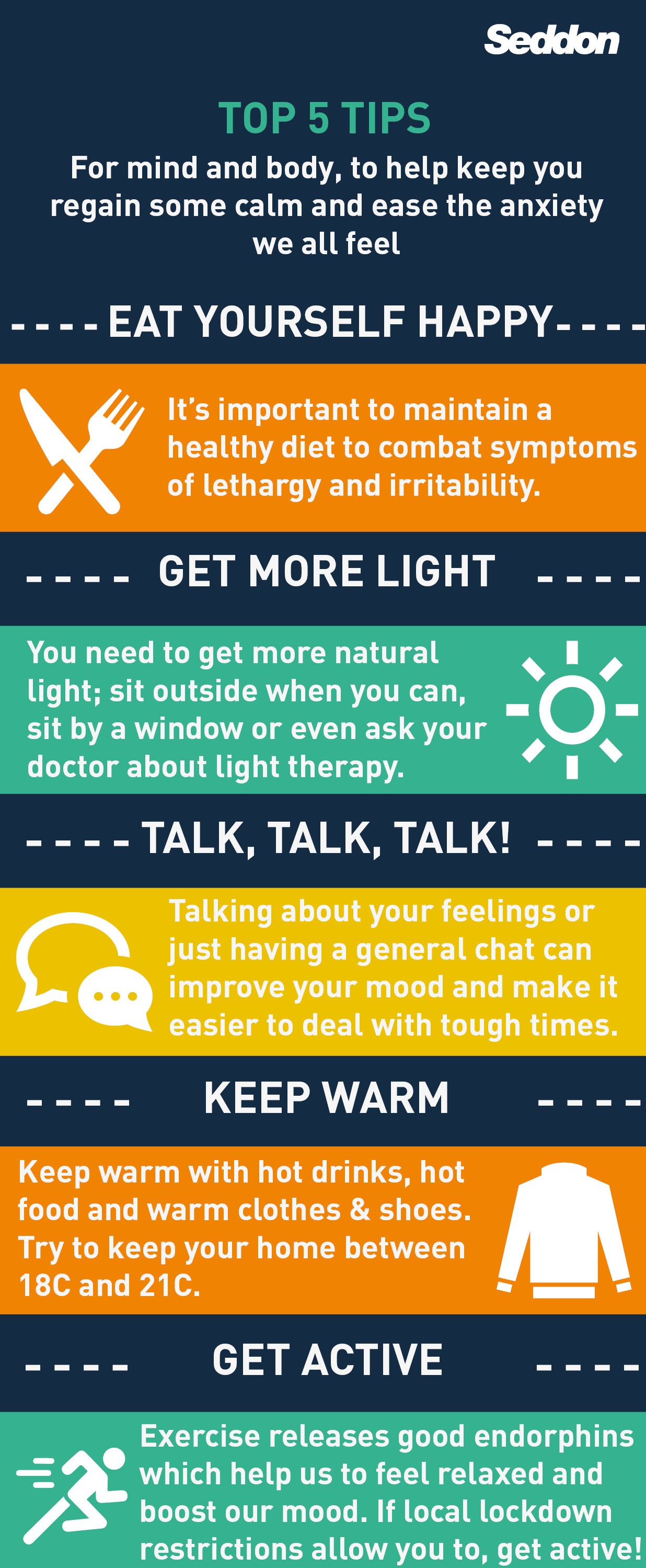As Winter draws near, bringing dark nights and cold weather, we’ve been thinking about mental health.
Since March, our lives have changed in ways we could never have imagined; from the heartache people have faced losing family members and friends, to job insecurities and missing interaction with people and many experts are now warning about a tsunami of mental health cases due to the stress and worry the Pandemic brought.
It’s also a well-known fact that changes to the weather and darker nights can affect your mood, and even without the restrictions and upset that the pandemic brings, this time of year can be difficult for many, especially those already struggling with mental health.
Scientific evidence has proven the ‘Winter Blues’ are not just a myth, with reports showing that the lack of light during the dark winter months contributes to a disorder entitled ‘Seasonal Affective Disorder or SAD’.
To help you try to regain some calm and ease the anxiety we all feel, we’ve pulled together eight top tips for mind and body:
1. Look after your mind – if you feel tired, irritable, anxious, less interested in things, or have trouble eating or sleeping you may be suffering from depression. It’s important you get professional help as soon as you can; many doctors are now doing virtual appointments, so they’ll still be able to help whilst staying safe.
2. Eat yourself happy – winter and being indoors can be a time for craving carbs and sugary foods, but it’s important to maintain a healthy diet to combat symptoms of lethargy and irritability.
3. Get active - exercise releases good endorphins, helping us to feel relaxed and boost our mood. If local lockdown restrictions allow, try going to the gym, or go for a walk outdoors.
4. Help someone else - it’s no secret that helping other people often makes us feel better. Could you volunteer to help the vulnerable?
5. Get more light - the winter blues can be caused by lack of light. To combat this, you need to get more natural light; sit outside when you can, sit by a window or even ask your doctor about light therapy.
6. Keep Warm - Advice from the NHS tells us being cold may make you feel more depressed, so staying warm may reduce the winter blues.’ Keep warm with hot drinks, hot food and warm clothes and shoes. Try and keep your home between 18C and 21C (or 64F and 70F degrees).
7. Talk, Talk, Talk! - talking about your feelings or just having a general chat can improve your mood and make it easier to deal with the tough times; if you can’t visit family or friends in person you could pick up the phone, or use facetime, what’s app or zoom for a video call.
8. Share – whether a therapist or with family and friends it’s important to share how you feel. Lots of people are feeling anxious during these unprecedented times, never feel like you’re the only one.
For more information and for help on the above please see the below.
NHS - Dealing with the winter blues.
Mental Health Foundation - Looking after your mental health
